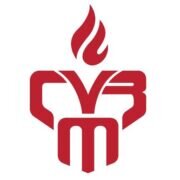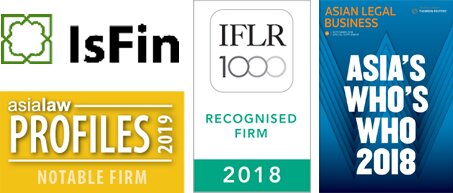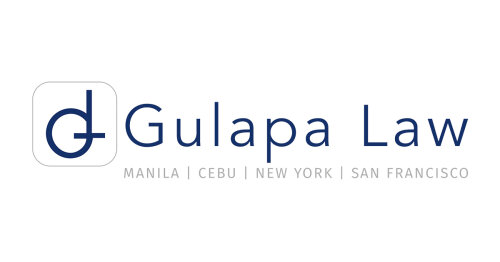Best Whistleblower & Qui Tam Lawyers in Philippines
Share your needs with us, get contacted by law firms.
Free. Takes 2 min.
Or refine your search by selecting a city:
List of the best lawyers in Philippines
About Whistleblower & Qui Tam Law in Philippines
Whistleblower and qui tam laws in the Philippines are designed to encourage individuals to report misconduct or fraud involving government funds without fear of retaliation. These laws provide legal protection to whistleblowers who expose illegal or unethical activities within organizations, particularly those involving corruption, graft, and misuse of public resources. The concept of qui tam, which allows a private individual to bring a lawsuit on behalf of the government and share in any financial recovery, is still developing within the Philippine legal framework. Efforts are ongoing to reinforce legal protections and incentives for whistleblowers to ensure accountability and transparency within both public and private sectors.
Why You May Need a Lawyer
You may require legal assistance in whistleblower and qui tam cases in the Philippines for several reasons. Navigating the legal landscape can be complex, and a knowledgeable lawyer can provide crucial guidance. Common situations include:
- Determining if your information qualifies for whistleblower protection.
- Understanding the procedures for reporting misconduct and ensuring anonymity where applicable.
- Assisting in filing a qui tam lawsuit and representing you in court.
- Defending against any retaliation or wrongful termination after reporting misconduct.
- Negotiating settlements and handling media relations if necessary.
Local Laws Overview
The legal framework for whistleblower protection in the Philippines is primarily governed by Republic Act No. 6770, also known as the Ombudsman Act of 1989, and other related legislation. Some of the key aspects include:
- Protections for government employees who report corrupt practices.
- The role of the Office of the Ombudsman in investigating complaints and safeguarding whistleblowers.
- Penalties for retaliation against whistleblowers.
- Provisions in the Anti-Graft and Corrupt Practices Act that encourage the reporting of corruption.
Frequently Asked Questions
1. Who can be considered a whistleblower in the Philippines?
Any individual who reports misconduct, fraud, or corruption involving public funds or resources can be considered a whistleblower.
2. What protections are available for whistleblowers?
Whistleblowers are protected from retaliation, which can include wrongful termination or harassment. Legal remedies and reinstatement may also be available.
3. How can one file a complaint as a whistleblower?
Complaints can be filed with the Office of the Ombudsman or other relevant government agencies, depending on the nature of the misconduct.
4. Can whistleblowers remain anonymous?
Efforts are made to protect the identity of whistleblowers, though complete anonymity cannot always be guaranteed, especially if a case proceeds to litigation.
5. Are there monetary rewards for whistleblowers?
While Philippine law does not generally offer monetary rewards for whistleblowers, successful qui tam actions could potentially involve financial recovery.
6. What is a qui tam action?
A qui tam action allows a private individual to file a lawsuit on the government's behalf against those committing fraud involving public funds.
7. What are the risks of whistleblowing?
Risks include possible retaliation, workplace harassment, or legal complications, though legal protections aim to mitigate these risks.
8. How can I find a lawyer specializing in whistleblower or qui tam cases?
Consult local bar associations, legal aid organizations, or online directories to find lawyers specializing in this field.
9. Is there a statute of limitations for filing a whistleblower complaint?
Yes, there is a time limit within which a whistleblower complaint must be filed, varying depending on the nature of the case and applicable laws.
10. What evidence is needed to support a whistleblower claim?
Documented evidence of wrongdoing, including emails, receipts, and witness statements, can support a whistleblower claim.
Additional Resources
For further information or assistance, you may consider contacting the following:
- Office of the Ombudsman
- Integrated Bar of the Philippines
- Government agencies dealing with specific sectors (e.g., Anti-Money Laundering Council)
Next Steps
If you need legal assistance in whistleblower or qui tam cases in the Philippines, begin by consulting a lawyer who specializes in this area. Prepare to discuss your case in detail, providing any documentation or evidence you have. Remember to ask about the costs involved, potential outcomes, and timelines for resolution.
Lawzana helps you find the best lawyers and law firms in Philippines through a curated and pre-screened list of qualified legal professionals. Our platform offers rankings and detailed profiles of attorneys and law firms, allowing you to compare based on practice areas, including Whistleblower & Qui Tam, experience, and client feedback.
Each profile includes a description of the firm's areas of practice, client reviews, team members and partners, year of establishment, spoken languages, office locations, contact information, social media presence, and any published articles or resources. Most firms on our platform speak English and are experienced in both local and international legal matters.
Get a quote from top-rated law firms in Philippines — quickly, securely, and without unnecessary hassle.
Disclaimer:
The information provided on this page is for general informational purposes only and does not constitute legal advice. While we strive to ensure the accuracy and relevance of the content, legal information may change over time, and interpretations of the law can vary. You should always consult with a qualified legal professional for advice specific to your situation.
We disclaim all liability for actions taken or not taken based on the content of this page. If you believe any information is incorrect or outdated, please contact us, and we will review and update it where appropriate.
Browse whistleblower & qui tam law firms by city in Philippines
Refine your search by selecting a city.















